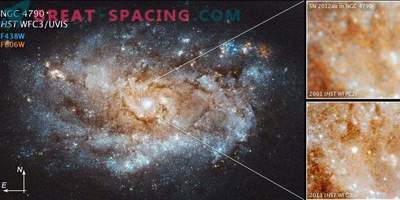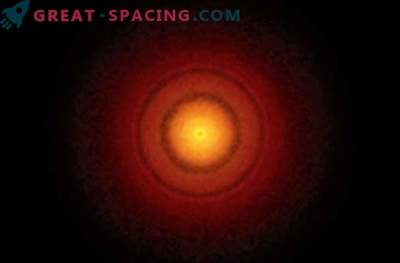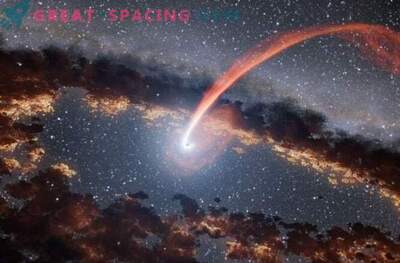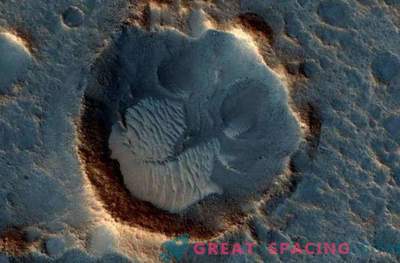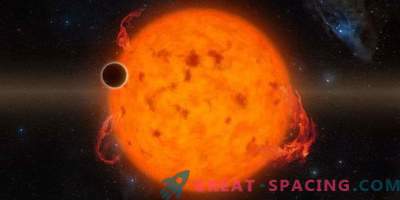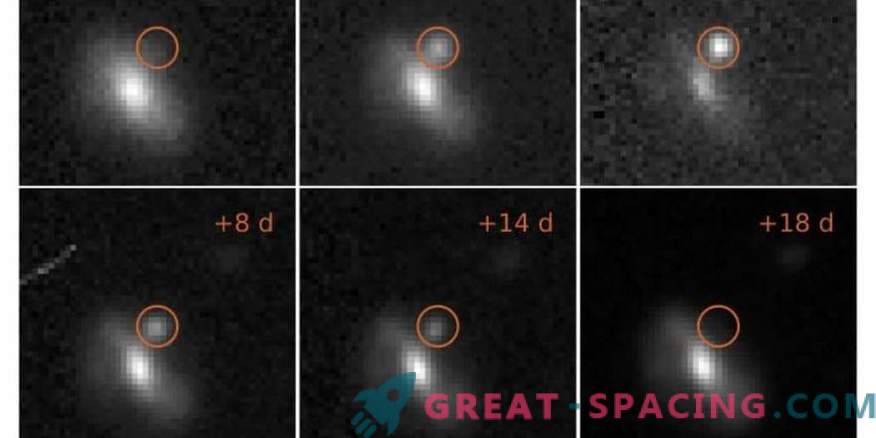
A snapshot of one of the transient events from 8 days in front of maximum brightness up to 18 days. The outbreak occurred at a distance of 4 billion light years.
A team of scientists was able to identify 72 extremely bright, but rapid events in a recent review. Their origin is still under discussion. Events recorded in the program DES-SN. This is part of a global study of dark energy insights leading to the acceleration of universal expansion.
DES-SN uses a large camera on a 4-meter telescope at the Cerro Tololo Inter-American Observatory. The review looked at supernovae — explosions of massive stars at the end of their lives. Such an explosion can for a short time reach the brightness of the whole galaxy.
Researchers from the University of Southampton managed to find the largest number of these rapid events today. Even for transitional formations, they are very peculiar: they are endowed with the same maximum brightness, but are visible in less time (from a week to a month). But supernovae lasted several months and more. The temperature of events reaches 10000-30000 ° C, and the size is 100 times the Earth-Sun distance. In addition, they expand and lose heat as they develop.
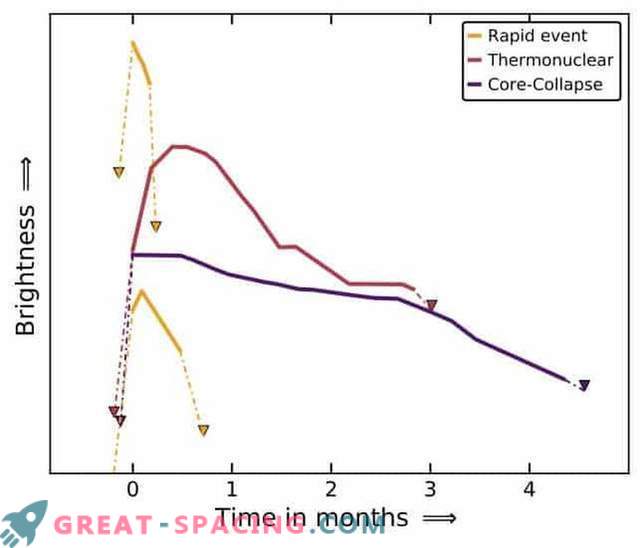
The graph demonstrates the evolution of brightness for two fast transient events and two typical supernovae: thermonuclear and core collapse. In the first remnants the size of the Earth (white dwarf) attract the critical mass of the satellite and explode. In the second variant, the massive star depletes fuel from its core and explodes.
The origin of the transients is still under discussion. Perhaps the star before the supernova explosion sheds a lot of material and in extreme cases could have been completely wrapped with it. Yes, and the supernova itself is capable of heating the surrounding material to high temperatures. Now researchers see a hot cloud, but not the explosive star itself. More data will be required for confirmation.


